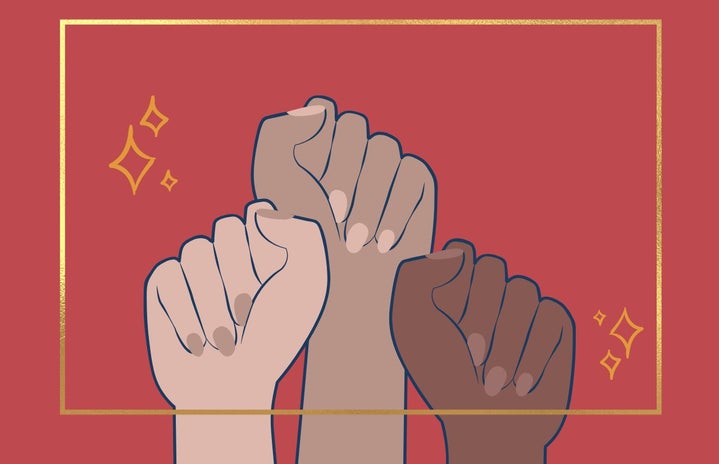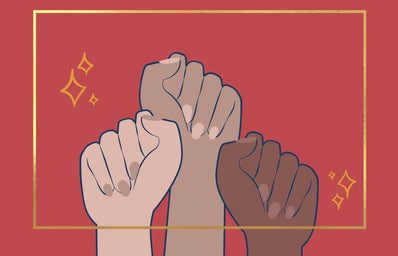“These rapes are political acts, meant to humiliate the “enemy” – dishonoring the woman is dishonor of the community, a challenge and insult to the men of the community who could do nothing to “protect the honor of the women, i.e. the community”.
-Fascism, Fundamentalism and Patriarchy, Anuradha Gandhy
The so-called celebration of motherhood and womanhood, ‘Matrishakti’, has deep roots in Indian Hindu mythology. It is said that a Feminine energy, supposedly unconditional, unbiased and pious manifests itself in the form of Motherhood. However, most people are unaware of the fact that ancient religious texts were written by upper caste men. Patriarchy promotes the image that a woman’s salvation lies in her ability to conform to the norms of the society where she is supposed to play a role of strong, responsible and selfless yet subordinate, taking care of the children and the husband unconditionally. At the same time, it is presumed that the men of the family are responsible to protect his women. Thus, rather than empowering her, women, especially those belonging to the lower castes, are pushed to the periphery of the society.
This article has drawn inspiration from the text, ‘Fascism, Fundamentalism and Patriarchy’, by the renowned Marxist Feminist, Anuradha Gandhy. An effort has been made to examine how the society has put women on the ‘honorable’ pedestal, that has evident religious underpinnings. Hinduism has a central position for female deity. People exclusively worship the feminine divine in the form of Shakti or Divine Mother . However, has it led to the assumed empowerment? Or has it made women a prey to Brahmanical Patriarchy? Thus, the article is based on the Indian Context, how fundamentalism and patriarchy combines to add to women’s suppression.
One of the most important agents for patriarchy to thrive in any society is religious fundamentalism. The worldwide rise in fundamentalism is sanctioned by the same patriarchal, moral code of superiority. One of the central points of fundamentalist propaganda is a conservative ideology of gender. All of the fundamentalist forces, irrespective of their religious leanings, proclaim the specific agenda of restoring the centrality of the family and home, in the life of women. By doing so, they want to retain the patriarchal control over her sexuality. The preconception that women are supposed to keep the family together and that she is the reason for the family’s welfare and happiness, adds to the idea of honor in Indian society. Thus, needless to mention that the unnecessary glorification of womanhood assumes a misogynistic character in what an ‘ideal’ woman should be.
The idea of women empowerment, ‘matrishakti’, has often been used by several vested interests to pursue their political ends, controlling women’s sexuality. In an attempt to realize women empowerment as a trend, instead of a need of the hour, political groups today have begun to form their own women’s association. This is a token representation that creates an illusion of women’s participation in the decision making process. We hear politicians echo how it is the matrishakti that adds to the country’s prosperity. However, the lack of action to realize the same is evident. We cannot forget the horrors of Partition and 2002 Gujrat Riots when violence against women was politicized. ‘There was a distinct, tragic and ghastly feature of the state sponsored carnage unleashed against the Muslim minority in Gujarat, which was the systematic sexual violence committed against young girls and women. Rape was used as an instrument for the subjugation and humiliation of a community’, writes ThePrint. The communal and patriarchal biases of the society flourishes when one community is in conflict with the other and the members of the community are indoctrinated to promote violence against the other, even if it means assault and bloodshed. Historically, what we have been in the name of communal tensions is sexual violence against women.
It is important to highlight the very fact that the strong portrayal of women as Shakti in religious texts reflects the hypocrisy of the patriarchy. We need to realize women empowerment through actions. This struggle isn’t possible without taking into account intersectionality. The experiences of women belonging to different sections of the society must be counted and not generalized or assumed. The struggle against patriarchy, stirred by religious fundamentalism, can only be possible when women are mobilized in large numbers to discern the consequences that must encompass political, economic, and social aspects.


